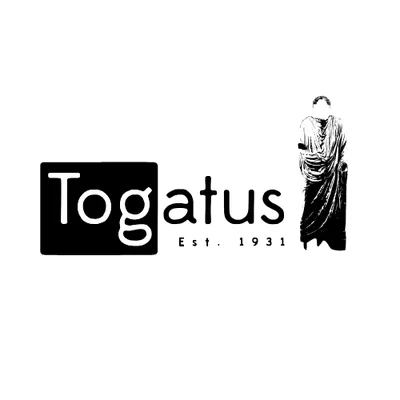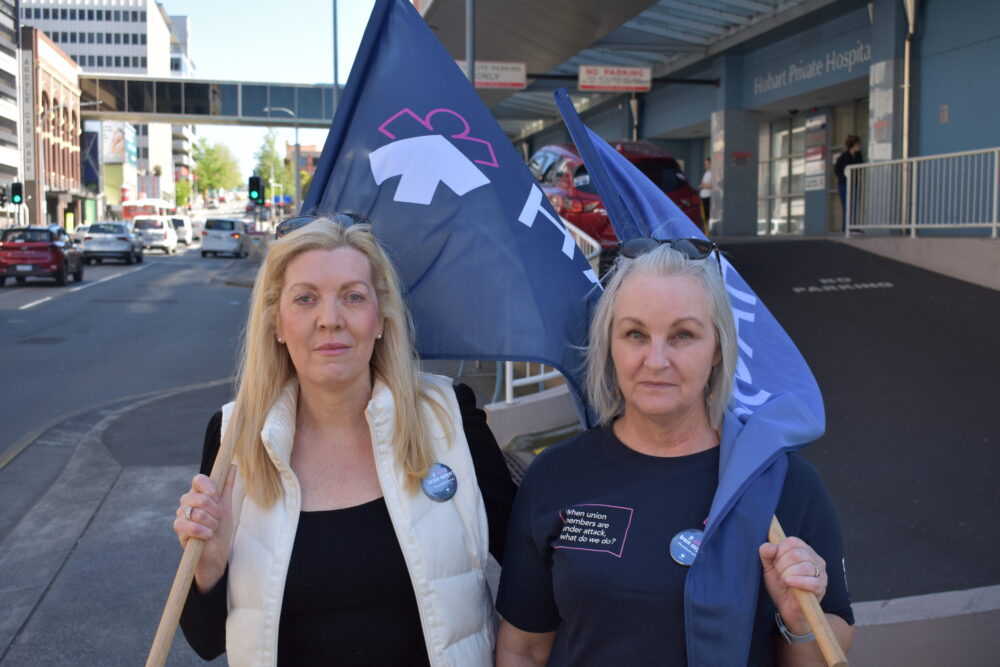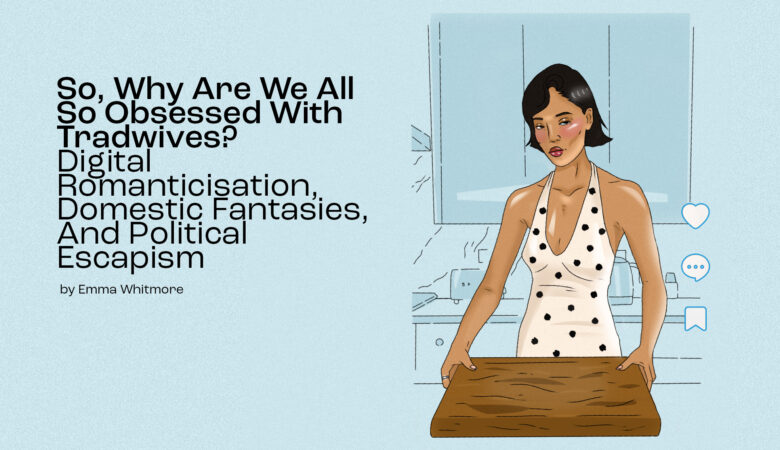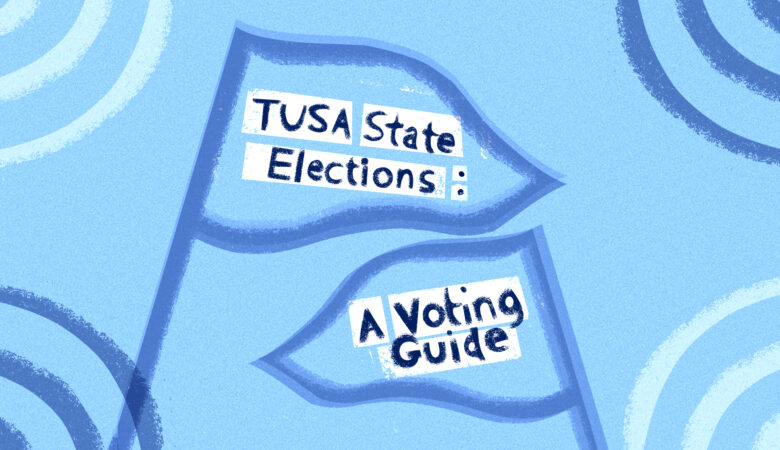Last October, nurses from the Hobart Private rallied outside their workplace to demand safer staffing levels from their employer.
This latest action comes out of 11 months of dysfunctional negotiations between the Health and Community Service Union (HACSU) and healthcare giant Healthscope to reach a new enterprise bargaining agreement (EBA) that puts people before profit.
Christine Hansson, a level 2 registered nurse at the Hobart Private and HACSU delegate, has worked at the hospital for 20 years. She claims that the hospital’s short staffing issues jeopardises not only the wellbeing of ward nurses, who are subjected to overwhelming workloads and hours – but the hospital’s patients also:
“At the moment, we do not have enough nurses to look after the patients that we have. Ultimately, the nurses are so stressed that they miss things and ultimately patient outcomes could be compromised.”
Information released by HACSU about the effects of short staffing on Hobart Private patients reflects Ms. Hanson’s concerns.
Staggeringly, the current ratio between nightshift nurses to patients is one to ten – a statistic particularly troubling considering the significant number of high needs patients the hospital sees. Such an imbalance can result in patients not receiving medication on time, increased risk of infections and longer hospital stays.
Despite booked lists running six days a week and running late into the night, patients are also waiting longer for surgeries, with insufficient ward staff available to care for them after theatre has ended.
Ms. Hansson says a solution to the hospital’s unsafe staffing levels is the introduction of assistants in nursing (AINs). This would not only ease the burden of ward nurses, but provide crucial paid experience to those entering the healthcare industry:
“One of the things we’re asking for, well the hospital actually put it towards us, is assistants in nursing. They are nursing students or they can be Cert 3 going through TAFE. They’re not fully graduated yet, but it enables them to come and start working in a hospital scenario. […] They can do some of the basic day to day hygiene care that the patients need and take a bit of pressure off the registered nurses to look after the patients”.
HACSU Secretary Tim Jacobson also echoed Ms Hansson’s sentiments, highlighting the current recruitment difficulties in the industry:
“We’re not asking for sheep stations here. […] We know that recruiting specialist staff at the moment, given particularly the outbreaks in Victoria and New South, is extremely difficult in Tasmania. We know it’s difficult to recruit nurses and that’s why we’re asking the Hobart Private to bolster their nursing workforce with AINs on a daily shift basis, to, in the event that there are vacancies, fill those vacancies”
Since February, unionised Hobart Private nurses have also participated in stop-work meetings to pressure their employer to include the addition of AINs in a new EBA. This decision, Ms. Hannson states, was not taken lightly:
“It’s really difficult because the hospital makes it very uncomfortable for people who walk out to go back in. It’s a real, real gut-wrenching thing to have a stop-work meeting […] actually leave the hospital, leave patients and it’s a very difficult moral thing for a nurse to do. That’s how serious we believe our cause is”.
HACSU encourages those interested in supporting Healthscope nurses to contact the company’s General Manager Kathryn Berry to urge them to fix workloads and patient safety.








